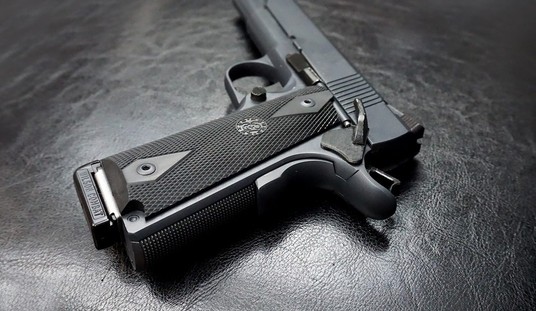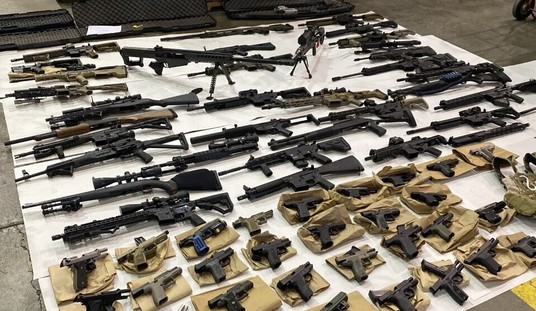In 1942, a young man from Sanford, Florida was attending School at North Carolina State. His name was Arthur Branan Jr. The draft age, which had been at 21, was then lowered to 18. Arthur, being 19, was required to register.
Finishing his summer term, he returned home and contacted a man he knew who was actually a draft officer and inquired of him as to how long it might be before he was drafted. Being told it might be a month or two, and his preference was not being in the ground forces, he decided he would join the Air Force instead. This took him to Orlando, Florida where he joined the Army Air Force. There he took his physical and any other required tests and was sworn in. He was actually given a choice of waiting for the Flight Program at Orlando Army Air Force Base which was exactly what he wanted.
On February 1, 1943, Arthur was called to train for Flight Program and went through basic training at Miami Air Force Base. All over the country 150,000 men at one time were called to active duty. In Miami alone, there were 40,000.
Finishing Basic Training, Arthur left for Nashville, Tennessee for classification where he requested Twin Engine Pilot School. He followed this with Maxwell Air force Base in Montgomery, Alabama for Crews Basic Flight training which lasted for 10 weeks.
Next was Primary Flight School in Jackson, Mississippi, then on to Basic Flight school in Greenville, Mississippi.
This was all finalized by Advance Flight School in Lawrenceville, Illinois in Twin engine Training where a hard-won Graduation took place on February 7th 1944, culminating almost one year of training. Arthur was one of the 120 young men that graduated that day and received their wings. He was now Lieutenant Arthur Branan Jr.
After graduation, Lieutenant Branan left for Massachusetts to train as a copilot on a B-24 Four-Engine Bomber and upon completion was sent to South Carolina for Combat Crew training where 40 to 50 crews were trained for 10 weeks. Once finished, they were not told where they were going, but 10 did go to England and 40 went to Fort Lauderdale, Florida.
He was to fly to Italy, but the trip was very convoluted for good reasons. The Lieutenant was first sent to Trinidad and then Belem, Brazil; on to Natal, Brazil; next to Dakar, French West Africa. From there he flew to Marrakech, Morocco; followed by Tunis, Tunisia. Two of the plane rudders were not functioning correctly and had to be worked on in Tunis to get them corrected.
While their plane was being worked on, he and a group of his buddies went into a part of Tunis to what was called a Medina. The Medina was a circular shopping area completely surrounded by a high stone wall. The Medina was known as the Casbah. (You’ve heard that word before.)
Lieutenant Branan had an ID bracelet that his Dad had given him when he graduated from Flight School. He graduated as a 2nd Lieutenant and wanted his Officers serial number put on the back of the bracelet. He saw a vendor who would do just that. In the course of accomplishing this, he became separated from his group as they went on to see other things.
When the bracelet was finished, he paid the vendor and exited through the rear door of the Medina. Outside, he was approached by a man who offered to show him even more of the Medina for the fee of $5.00.
Thinking this might be interesting, he accepted. They re-entered at the same rear door and he was escorted to the second floor. The Lieutenant was taken into a very large room where he was completely stunned at what he saw. With the exception of the floor which was covered with an Oriental rug, this room was constructed entirely of gold. There was not a thing in it that was not gold. Wherever his eyes looked there was gold. The ceiling, walls, doors, all furniture, lamps, windows, sills, draperies, painting and mirror frames, anything and everything the eye could see. He was then shown to the kitchen, bedroom, and bathroom where it was exactly the same including the commode in the bathroom. He was completely in awe of it all.
The explanation for all this was that the apartment belonged to a Caliph who was away. The escort was to keep his eye on things and apparently made a lot of money showing it to individuals while the Caliph was away. Eventually, the Lieutenant left the way he entered and connected once more with his friends who were waiting for him. They were as astounded as he by the episode he told them.
All of this site-seeing was available to them because at this point in the war, they had run both the Germans and the French out of Tunis and back to Algeria.
The Lieutenant and his friends caught a bus back to the base in Tunis, spent the night and flew the repaired plane to Italy where they were to be stationed in a town called Manduria. Manduria was located in the southern most part of Italy in the middle of the heel.
He and the rest of his crew were now in the 722-Bomb Squadron in the 450-Bomb Group, all in the 47th-Bomb Wing along with other bomb groups and all part of the 15th Airforce under the Command of General Twinning, General of the 15th Airforce.
Their first days in Manduria were spent testing the plane to see if it was properly repaired for operation and on June 22 conducted their first bomb raid on a town which the Germans still occupied in Italy. The town was called Udine and the Germans had freight cars there that were to be used when they needed to transport supplies. Each of the bomb groups contained 40 bombers. They flew in with their B-24’s, successfully destroying the freight cars.
The following day, their flight was over Yugoslavia where they flew into a violent thunder storm. They had no choice, but to return to base. Still carrying a load of ten 500-lb bombs required them to fly up and down over the water to use up all the fuel before attempting a landing.
In Romania there was a supply of 12 oil refineries, one owned by Romano Americano. Romano Americano was a supplier to Germany and this was a major target they wanted to take out. They flew in at 22,000 feet and immediately hit 1 of the 12 oil refineries.
This was quite a success, but was marred by the Flight Commander who wanted to take photos of the hits. In so doing, he jeopardized the entire group of bombers. They were immediately hit by flak and Lieutenant Branan’s plane lost 2 engines on the left side. His plane wanted to make it to Turkey (a neutral country) which was the closest for a wounded plane, but no luck; they were attacked by fighter planes. Several of the crew were trapped in the plane, but most of his crew bailed out over Romania. They landed in the middle of a corn field which was only waist high and were immediately surrounded and taken prisoner by Gendarmes who used a 4-wheel wagon to transport them from several small villages and towns until they finally reached Bucharest and were imprisoned in an old school house which had been condemned for use and was expected to be taken down. The crews of most of the other planes were also made prisoners. This was June 24,1944.
Their quarters, even though in a condemned building, were not that bad. They had bathrooms, rooms with cots, and a kitchen. The lieutenant improvised. Finding straw and a cotton bag out in the courtyard, he filled the bag with the straw. Placing it on the cot made it more comfortable than just sleeping on the springs.
There were Russian prisoners there and they were made the cooks. The prisoners subsisted on a diet of cabbage soup for the next 10 weeks. The Lieutenant was not that heavy to begin with so he went from 135 lbs to 100 lbs.
To digress a bit, King Carol II had been the King of Romania. He and his mistress, who later became his wife, went into exile. They flew to Spain. Prince Michael, his son, executed a coup over throwing the pro-Nazi dictator Ion Antonescu and became King Michael. Michael was able to see the handwriting on the wall, and made every effort to contact the Allies and finally succeeded in doing so. King Michael negotiated and made his country and additional ally of the Americans and their allies as well.
This was a fortunate move for the prisoners. King Michael then made arrangements for the American Commanding Officer to be taken back to the American lines. They accomplished this by taking the radio the out of the plane. The plane was a ME-109 (otherwise known as a Messerschmidt.) This is where they ‘stored’ the Commanding Officer. The plane was covered top to bottom with painted-on American flags.
The plane flew back slowly and landed in American territory in Bari, Italy. There it was immediately surrounded by American soldiers. They opened the area where the Commanding Officer was ‘stored’. He exited feet first so they would recognize his American boots.
The Commanding Officer told General Twinning that he had 1,200 prisoners that he wanted to get home. To do this, required building a wooden framework and a plywood floor into each of the four bombays of each plane. This enabled transporting the prisoners home. On August 31st, Forty B-17’s flew into Bucharest to carry the prisoners back home. Home of course was the American lines in Italy.
The first day, 800 prisoners were flown to the American lines and the following day the remaining 400 prisoners were also flown back.
The days of transport of the prisoners, General Twinning called off combat. The sky was full of fighter planes to protect and welcome the prisoners back.
Sadly there were three in Lieutenant Branan’s plane that did not make it out and were buried by the Romanians. Two of the Romanians actually came and spoke to the Lieutenant before he was released and asked him for the names of the three men in order to place their name on the crosses they had put there. Their ID’s had burned up in the plane with them when they were trapped and not able to get out. He later checked, and, they did indeed put the names of the three men on the crosses.
Once returned to the States, the Lieutenant joined the Reserves and after 29 years retired as a Lieutenant Colonel.
Thank you for your Service Lieutenant Colonel Arthur Branan Jr.








Join the conversation as a VIP Member